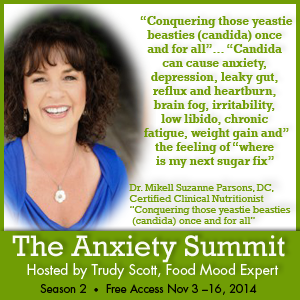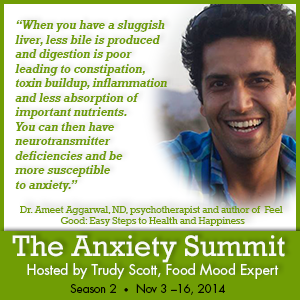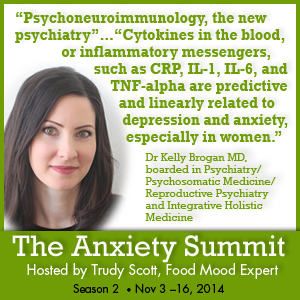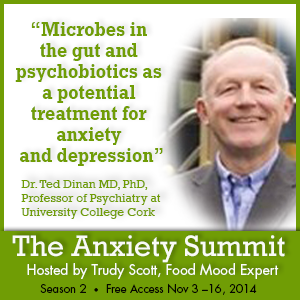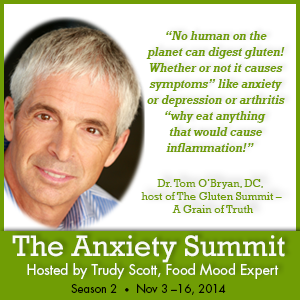Dr Mikell S. Parsons, DC. Certified Clinical Nutritionist was interviewed by host of the Anxiety Summit, Trudy Scott, Food Mood Expert and Nutritionist, author of The Antianxiety Food Solution.
Conquering those yeastie beasties (candida) once and for all
- Yeastie beasties/ candida: what it is and how common it is
- How to assess if you have it and symptoms of overgrowth
- Why craving sugar is a HUGE sign of a yeast overgrowth
- How yeast can be a cause of weight gain
- How do we get it and is it contagious
- Protocols for getting rid of the yeastie beasties
- Methylation and mercury toxicity and candida?
Here are some snippets from our interview:
We’ve got a lot of different microbes in the gut, and we’re supposed to have them, but they’re all supposed to be in the right balance. It’s when the body gets out of balance, yeast is opportunistic. I tell my patients yeast is like a covert spy. It’s laying in the background, doing its thing, acting like everything is cool until the body gets out of balance. And then it can just grow like crazy. And that’s when people start to get symptoms. So we’re all supposed to have it, but the question is will your body provide the opportunity for yeast to kind of take over.
I’ve found it in people who may not have had antibiotics in the last five years or so. But they’re eating a lot of food that is higher in sugar, and they’re not eating vegetables and even good sources of protein. So if you coat your body from the inside with a lot of sugar, that candida starts to kick up their heels, and it’s like a fire. If you want a fire to build, keep putting wood on the fire. If you want to put the fire out, you take the wood away and you cover it with water.
Candida can cause anxiety, depression, leaky gut, reflux and heartburn, brain fog, irritability, low libido, chronic fatigue, weight gain and the feeling of where is my next sugar fix.
Here is the 2013 study we discussed: Could yeast infections impair recovery from mental illness? A case study using micronutrients and olive leaf extract for the treatment of ADHD and depression.
Micronutrients are increasingly used to treat psychiatric disorders including attention-deficit/hyperactivity disorder (ADHD), mood disorders, stress, and anxiety. However, a number of factors influence optimal response and absorption of nutrients, including the health of the gut, particularly the presence of yeast infections, such as Candida. As part of a wider investigation into the impact of micronutrients on psychiatric symptoms, many participants who experienced a yeast infection during their treatment showed a diminished response to the micronutrients. One case was followed systematically over a period of 3 y with documentation of deterioration in psychiatric symptoms (ADHD and mood) when infected with Candida and then symptom improvement following successful treatment of the infection with olive leaf extract (OLE) and probiotics.
You can get a copy of her fun and educational video here Sexy from the Inside Out: The Art of Poop.
If you are not already registered for the Anxiety Summit you can get live access to the speakers of the day here www.theAnxietySummit.com
